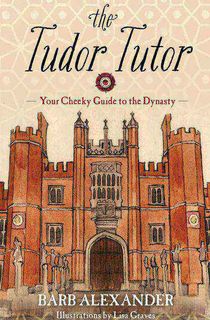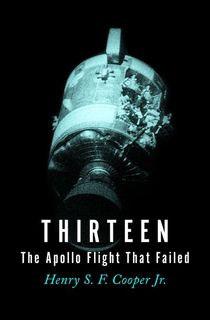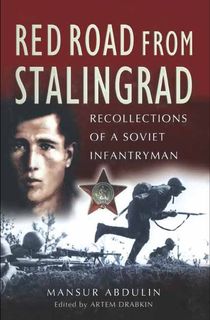Many of us have a little more time on our hands right now, but that doesn’t mean we don’t still have plenty to do. That extra free time is dedicated to cooking, cleaning, picking up new hobbies, playing Animal Crossing, and binge-watching our favorite shows on Netflix.
If your list of things to do with your downtime includes learning a little something new, but you don’t have the time for a long read, these 10 short books about world history and some of history’s most famous or interesting people are sure to make you smarter in just a few pages!

Ten Days in a Mad-House
Originally published as a series of articles in the New York World in 1887, Nellie Bly’s exposé on the deplorable conditions within America’s first municipal mental hospital made her famous and helped to change the way that the mentally ill were treated. Feigning illness, Bly managed to get herself interred within the hospital, only to see firsthand how grotesquely mistreated the patients inside were. “What, excepting torture, would produce insanity quicker than this treatment?” she wrote in this fascinating book that served as partial inspiration for a season of American Horror Story.

The Tudor Tutor
Styled as “your cheeky guide to the dynasty,” this slim book on the Tudor dynasty—which ruled over England, Ireland, and Wales for more than a century—separates the pop from the culture when it comes to this tumultuous band of aristocrats and their famous rulers, from the Wars of the Roses to Elizabeth I and Henry VIII, complete with full-color illustrations that put “the events and people of 500 years ago into a clear, modern context,” according to Justin Pollard, the historical consultant for the hit show The Tudors.

Thirteen
A minute-by-minute guide to one of the most harrowing moments in the history of spaceflight, Henry S. F. Cooper, Jr. expands on contemporary dispatches written for the New Yorker to paint a tense and “exciting” (The New York Times) portrait of an unforgettable moment in history.
Just hours from setting foot on the moon for only the third time in world history, the astronauts of Apollo 13 instead found themselves suddenly having to contend with an explosion, failing life-support, freezing temperatures, and a dangerously ill crew member. This page-turning short book shows how the crew and the people on the ground worked together to do the impossible and bring them home safely.

Red Road from Stalingrad
In 1942, Mansur Abdulin was a soldier in the 293rd Rifle Division of Russia’s Red Army, fighting the Germans on the front lines. In this vividly-recalled memoir, originally published in Russian in 1991, he writes with stark clarity about what life was like on the Eastern Front in battles ranging from Stalingrad to Kursk to the “Island of Death” in the Dnieper. Discussing his inspiration to write the book after so many years, Abdulin recalled a friend and fellow soldier who wished that someone had been there who could write about the experience. “I could only console him by saying that someone after the war would surely write about our island, as well as about our other bloody battles … I myself would wait for a long time, hoping that one of our comrades-in-arms would do it…”

Lifeboat No. 8
At only around 70 pages, history books don’t come much shorter than Lifeboat No. 8, Elizabeth Kaye’s stunning recreation of the events on the first lifeboat to flee the sinking RMS Titanic. Yet Kaye crams those 70 pages with detail and drama, showing the lives of those aboard the life boat, and what happened to those lives in the years after the most famous ocean tragedy in history. Characters include the Countess of Rothes, the wealthiest person on board the ship, who nonetheless rowed for hours through the icy water, and the Countess’s maid Roberta, whose love affair with the ship’s wireless operator may have inspired James Cameron’s hit movie.

Very, Very, Very Dreadful
There has never been a better time than in the midst of a pandemic to learn more about one of the deadliest plagues in human history—the influenza outbreak of 1918. In this slim yet heavily-researched book, complete with black-and-white photographs, National Book Award finalist Albert Marrin details the history and science of the deadly pandemic—with chilling warnings that speak to our own current moment.

The Professor and the Madman
Called a “brisk, gracefully executed work of popular intellectual history, a model of its kind,” by the Washington Post, this fascinating literary detective story chronicles the massive undertaking that led to the construction of the Oxford English Dictionary—and the shocking revelation that one of its principal contributors was a murderer held in a psychiatric hospital for the criminally insane.

Voices from Chernobyl
Winner of the Nobel Prize for Literature, this “oral history” of the Chernobyl nuclear disaster recounts not just what happened in that terrifying moment in the voices of those who were there, but what became of them in the years that followed in a stark, unforgettable book that Publishers Weekly called “a chorus of fatalism, stoic bravery, and black, black humor.”

First They Killed My Father
Loung Ung was one of seven children of a high-ranking official in Cambodia’s capital until she was five years old, at which time the Khmer Rouge staged a bloody coup, driving her family from the capital and forcing her into life as a child soldier. In this unflinching short memoir, she recounts the shocking events that shaped her early life, and how she reunited with those members of her family who survived after the fall of the Khmer Rouge.

Cassandra
Florence Nightingale’s scathing polemic against the “forced idleness” of Victorian women clocks in at a mere 64 pages, but it packs a punch. Not only does it center much of the philosophy that made Nightingale a worldwide icon through her efforts in nursing during the Crimean War, it has “maintained its position as a focal feminist text, an important documentary link between women’s earlier struggles for personal, legal, and political liberties, and the full-blown fight for emancipation that emerged in the first decade of the 20th century” (The Guardian).
Related: 26 Biographies of Remarkable Women That You Need to Read
This post first appeared on The Archive.
This post is sponsored by Open Road Media. Thank you for supporting our partners, who make it possible for The Archive to continue publishing the history stories you love.






